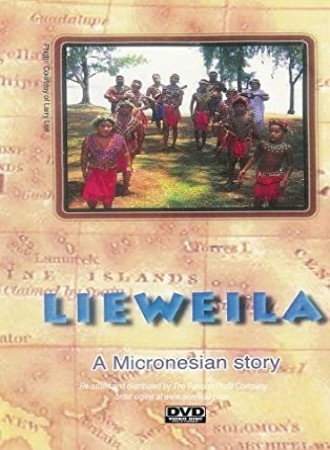
Lieweila: A Micronesian Story 1998
Distributed by First Run/Icarus Films, 32 Court St., 21st Floor, Brooklyn, NY 11201; 800-876-1710
Produced by Beret E. Strong & narrated by Cinta Matagolai Kaipat
A film by Beret E. Strong and Cinta Matagolai Kaipat
VHS, color, 58 min.
Adult
Multicultural Studies, Anthropology, Sociology
Date Entered: 11/09/2018
Reviewed by Lori Foulke, Milton S. Eisenhower Library, Johns Hopkins University"Lieweila", narrator Cinta Matagolai Kaipat tells us, means "listen to our story." This video tells the story of the Refalawasch or Carolinians who live in what is now the Commonwealth of the Northern Mariana Islands. Through personal narrative, lithographs, maps, and stunning visual footage, the history of the Caroline Islanders of the Pacific is told for the first time in film.
The narrator presents a captivating history of a fiercely independent people who subsisted for many centuries on the bounty of the sea and goods traded with the Chamorros of the Mariana Islands to the north. That placid history was forever changed in the 1500s, when the Spanish colonized the Mariana Islands and caused the Carolinians to curtail trade with their northern neighbors. The narrative of Lieweila traces the catastrophic earthquake and flooding in the mid-1800s which forced many Carolinians to seek refuge in the Marianas, on the Island of Saipan. The oral history presented in this video is filled with resistance to colonial assimilation and the struggle to maintain traditional customs and lifeways in the face of serial colonial rule first by the Spanish, and from the late 1800s onward by Germany, Japan, and the United States. The narrator describes the difficulties imposed on her people by the introduction of a cash economy in the 1960s, the invasion of the island by commerce and tourists in the 1970s, and problems of crime, drugs, and overcrowding brought about by immigration in the last few decades. Throughout, the video touches on issues of colonialism, indigenous land rights, the preservation of traditional culture, cultural pride, and the negative effects of capitalism and a cash economy.
Clearly, the intent of the video makers is to give voice to a member of an indigenous community, to tell her people's story in a manner consistent with that culture's traditions and values; and in this respect Lieweila, represents a laudable attempt to present an alternative to western historical discourse. However, Cinta Matagolai Kaipat straddles more than one culture - she is a formally educated lawyer and activist as well as a Carolinian woman - and has created a narrative that is a blend of genres and cultural influences. Not quite traditional oral history, not quite documentary, this video exhibits qualities of both.
While the visuals are stunning in this video, the sound quality is not as good as it perhaps should be. Appropriate for all audience levels, this video would make a welcome addition to collections highlighting Pacific Island cultures, Anthropology, Sociology, or Politics. Recommended.